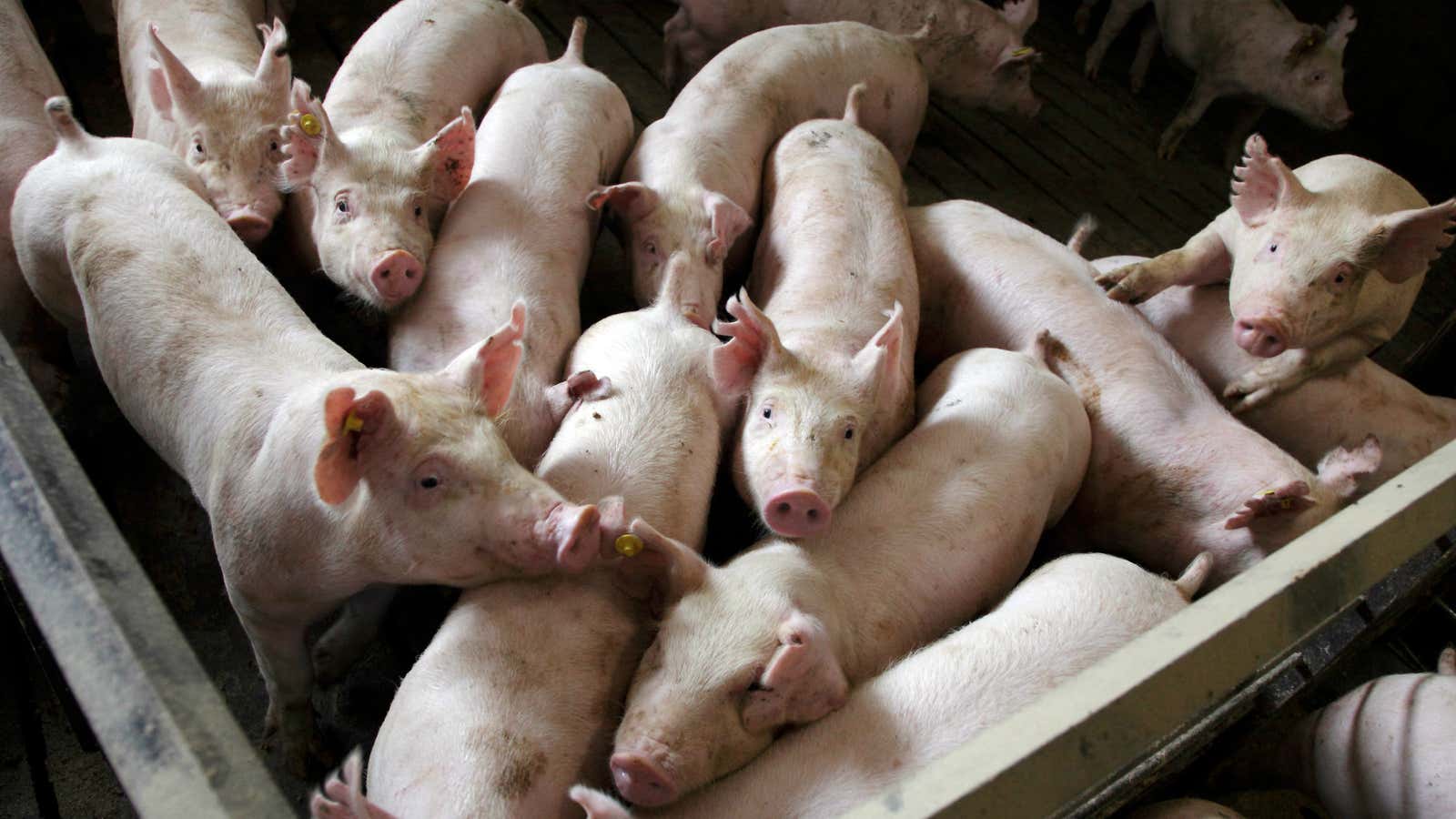The US’s domestic meat and fresh vegetable production is at serious risk of shrinking due to the Covid-19 pandemic.
The agriculture industry is dealing with multiple issues, including limited factory processing capacity, safety concerns about work conditions, and labor shortages, as well as confusion about government aid programs.
Challenges on the supply and demand side include the closure of several meat processing facilities due to hundreds of cases of Covid-19 infections in several states. The union representing meatpackers, the United Food and Commercial Workers, estimates there are 13 plants in the US that have suspended operations or have closed. This has put 25% of pork production and 10% of beef production offline, including at major producers such as JBS, Smithfield, and Tyson, according to Bloomberg.
Supply has been further hampered by the temporary closure of several pork plants in Canada, which were also hit with several cases of the novel coronavirus. Additionally, there are serious concerns about the more than 100 inspectors from the US Department of Agriculture (USDA) who tested positive from the coronavirus causing more shutdowns to plants that don’t yet have outbreaks. Inspectors have travelled from facilities with confirmed cases to other locations, increasing the risk of the virus spreading through their movement, Bloomberg said. Individuals infected with Covid-19 can pass on the virus even if they don’t have any symptoms.
The factory closures on both sides of the border have led to processing delays and significant reductions in capacity, forcing some farmers to “depopulate” and destroy thousands of animals that would otherwise be sold and turned into food products. Almost two million chickens at farms in Maryland and Delaware will be destroyed instead of being processed for meat, the Baltimore Sun reported. Farmers have also been dumping large volumes of milk, fruit, eggs, vegetables, and even beer, Business Insider reported.
In addition to a near-total collapse in demand for food products from institutional buyers such as schools, restaurants, hotels, and cruise ships, farms are concerned government aid programs won’t be sufficient to help them survive the current crisis. While the federal government has allotted $16 billion in aid to agricultural producers through the USDA, many small farms were not able to apply for emergency loans through the Paycheck Protection Plan before its initial funding ran out, according to CNN Business.
